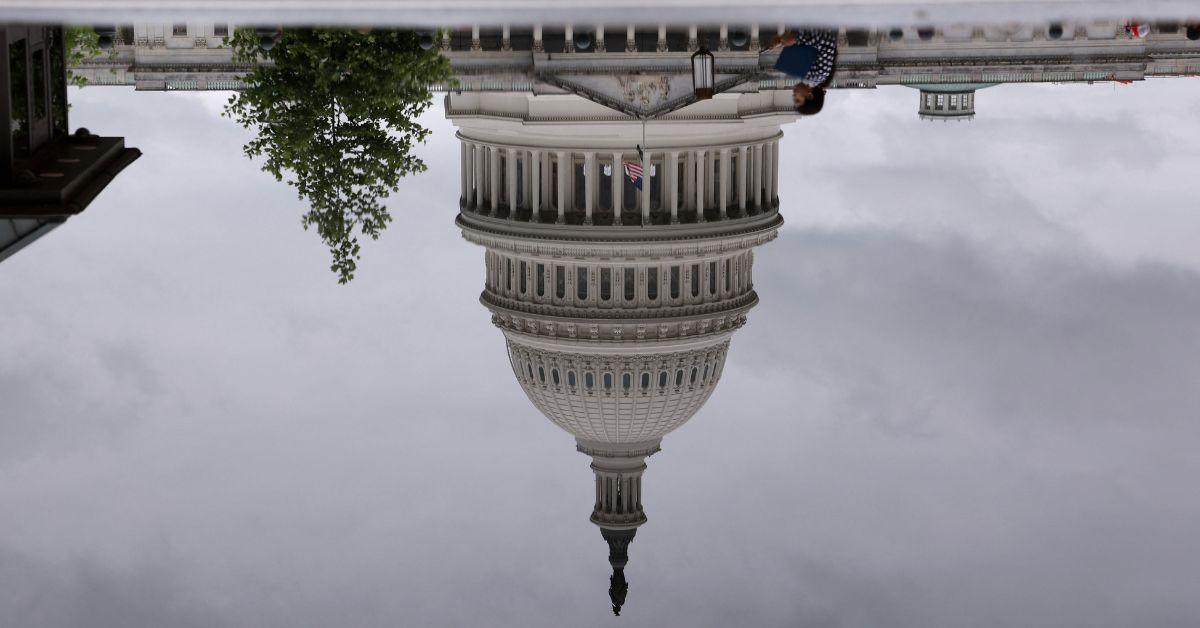Trump's Big Beautiful Bill Has Passed the House, but When Will it Go to the Senate?
The bill is supposed to get to the president before July 4.
Published May 23 2025, 11:07 a.m. ET

Donald Trump's big beautiful bill, which is mostly about taxes, has passed the House of Representatives. Following the news that the bill had made it out of the House, the next question is when it will get to the Senate and be voted on there.
As anyone who studied civics in high school should know, a bill needs to pass both houses of Congress and then be signed by the president before it can become a law. Here's what we know about what's next for the bill in the Senate.

The Capitol reflected in the pond on the National Mall.
When will the big beautiful bill go to the Senate?
The bill has already been passed over to the Senate, but because it's more than 1,000 pages long and includes 42 amendments, it will take some time for senators to review it. Speaker of the House Mike Johnson said that his goal is to get the bill on the president's desk before July 4, which gives Congress about six weeks to get it passed. Johnson has also indicated that the bill's passage out of the House proves this is possible.
Before the bill can get to the president's desk, though, it needs to go through the process of additional amendments in the Senate. The bill can pass through budget reconciliation, which requires only a simple majority, but any changes that get made to the bill in the Senate will have to be approved by the House again before the bill can come to the president. Given the Republican majority in both chambers, it seems like the bill will eventually pass, but that's not a guarantee.
The bill's impact would disproportionately favor the wealthy.
Although 1,000 pages means that there are dozens of carveouts and a myriad of ways this bill would impact specific programs, the big picture takeaway from the bill is that it would overwhelmingly cut taxes for the wealthiest Americans.
"[The] House bill is going to add about $4 trillion to the debt ceiling. The Senate bill adds $5 trillion. There's nothing fiscally conservative about expanding the debt ceiling more than we've ever done it before," Republican Sen. Rand Paul said on May 22.
Following the bill's passage, though, the stock market tumbled in reaction to the news. While the Senate bill could look significantly different than the version passed out of the House, the reality is that this level of tax cuts will almost definitely increase the federal deficit, even with the funding cuts that the bill includes to programs like Medicaid.
It's possible that the bill will pass in spite of these challenges, but we don't know for sure what its fate will be. All we do know is that it's overcome one major hurdle to its passage. There are still a number of other things that need to happen before this bill, which advances some key promises that Trump made on the campaign trail, can become a law. Until then, all eyes will remain on the Senate.